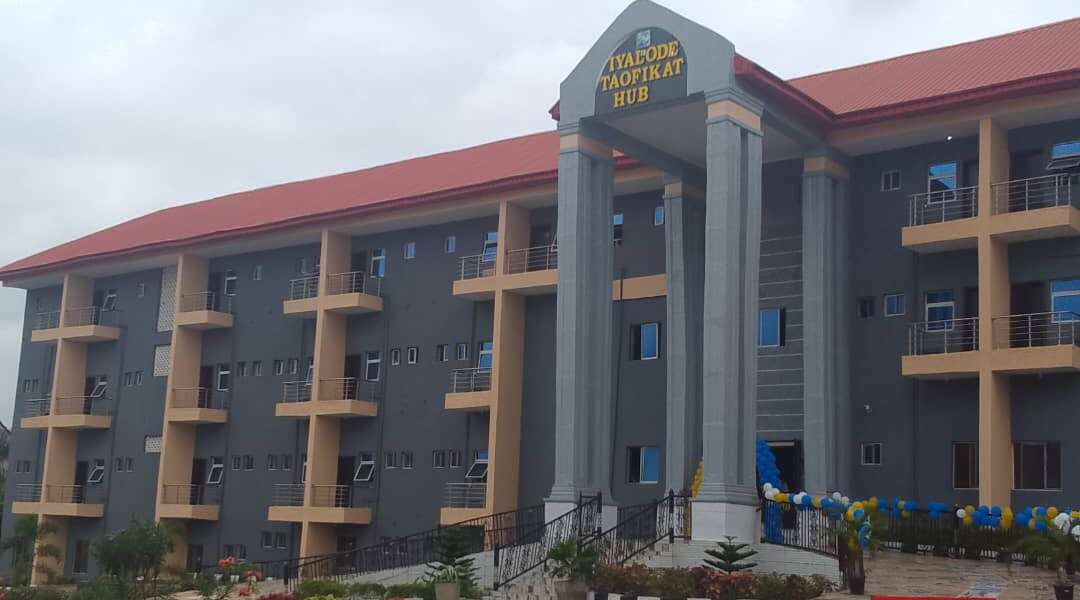Private Hostels and Campus Elections at UI

Almost every University of Ibadan student is familiar with the intense Hall of Residence politics characterising election season. Aspiring candidates for Students’ Union (SU) positions typically rely on the support of their Hall members, sometimes leading to fierce rivalries between Halls. Also, there is a constant struggle for control within Halls, as Hall Chairs and other leadership positions are highly sought after. But what about those students who don’t live in the regular Halls—those who reside in private hostels? These students are often left out of the typical political battles that unfold on campus, as they don’t share the same Hall identity that unites students in the general hostels. In this article, we explore the presence of Hall politics in campus elections, how residency in private hostels influences political engagement during elections at UI, and its effects on the pull of political power.
Oppositions and Apathy
Elections are held at three main levels: the Students’ Union, Halls of residence, and departmental/faculty levels, all of which are influenced by the known Hall-of-residence-influenced politics on campus. Every Hall seeks to control power at some level by having a representative win a seat, as good as partisan politics. Does this mean that those who do not reside in the general hostels are excluded from the shenanigans of the political process because of their living arrangements, or do they remain actively engaged despite their detachment from Hall dynamics?
Students living in private hostels may find themselves caught between two opposing forces. On one hand, they may be overlooked as an electorate, not fully integrated into the “Hall culture” that shapes much of campus politics. They lack the collective identity that comes with being part of a school Hall, which often leads to a sense of isolation during election season. On the other hand, private hostel residents are sought after as potential voters by political aspirants, who come knocking during their campaigns, hoping to secure their votes. The students may not feel any particular allegiance to any Hall or candidate but are frequently drawn into the fray, by familiarity with a Hall’s supporters or by a general desire to make an informed choice.
While students in regular Halls bond over the camaraderie of supporting their Hall aspirants, private hostel residents are left to make their own decisions. Some do not pick sides at all, choosing instead to vote based on their judgment of the candidate’s qualifications rather than their Hall affiliation. This independence is a positive, allowing them to avoid the often divisive atmosphere of Hall politics and cast a vote based on merit rather than loyalty.
Some, however, often report feeling apathetic toward campus elections. Unlike their counterparts in the regular hostels, who are swept up in the camaraderie and collective excitement, private hostel occupants report a disconnect. Apathy among students is a perennial issue — in fact, even among general Halls of residence students, where it more often stems from personal disinterest or other subjects of discussion — but in their [private hostel residents] case, the absence of the strong communal identity found in the general hostels contributes to the indifference.
Unending Intrusions
An intrusive aspect of the election season for private hostel residents is the campaigns by aspiring Hall chairpersons. Candidates for Hall Chair positions often extend their reach to private hostels by plastering posters in Hallways, on doors, and even in kitchens. In addition, they engage in door-to-door campaigns by political aspirants which reportedly disrupt the peace and privacy of private hostel students. Often accompanied by Hall supporters, aspirants are reported visiting rooms to convince residents to vote for their Hall’s candidate. In the case of the SU elections, residents are woken up — like everyone else on campus, really — by loudspeakers blaring messages about why a particular candidate is the best choice for SU President, Vice President etc. They report that this often feels invasive and noisy.
Online campaigns have also made their way into private hostels, as political aspirants take to social media and campus groups to promote their platforms. These online campaigns can be just as persistent as the physical ones, with not only those of Students’ Union aspirants but also Hall chair posters making their way into private hostel student groups on WhatsApp platforms. While online campaigns do allow students more control over their exposure to political messaging, they also highlight the inescapable nature of election season, where no space seems free from the political buzz.
The results of these outreaches on the outcomes of hostel elections are often unpredictable, as it is not easily determinable how readily the students are convinced to get involved in hostel politics. Private hostel residents may be uninterested in voting for Hall chairpersons in other hostels, especially when they have no affiliation with or knowledge of the candidates. However, familiarity with a candidate, their entourage, or supporters may sometimes prompt engagement.
SU and Departmental Zeal over Faculty
In contrast, Students’ Union (SU) election campaigns tend to remain relevant regardless of residential status. Private hostel students still feel connected to these elections because the SU addresses broader university issues beyond accommodation. As students, they encounter various challenges that the SU advocates for, which helps maintain their interest.
However, the earlier-mentioned apathy still exists. While some students who moved from general Halls to private hostels fondly recall the excitement of campaign periods, the absence of such lively activities in private hostels diminishes that sense of involvement. Some who have always resided privately admit to the possibility of more interest if they were living in a general Hall, but others state that they like their distance and relative peace.
The departmental and faculty elections are not exempt from the hostel politics we see even at this level: Hall members compete to help their fellow hostel mates gain control. Individuals canvass for their Hall members and strongly oppose others, to the point of physical confrontation, as was seen during the last CBN elections.
When comparing and choosing, however, the students of private hostels report feeling most connected to departmental elections. They state that while ‘hostel-hood’ plays a role here too, competence is a bigger determinant and campaigning remains confined to department members. This, to an extent, fosters a sense of valid democracy, where the process is streamlined, inclusive, and directly relevant to students’ academic lives. Many students living in private hostels claim that departmental elections are the only political contests in which they feel truly engaged. Consequently, there is minimal apathy toward departmental elections, as students view them as integral to their academic experience.
Conclusion
The situation of private hostel students during election season reveals a difference in their campus political experiences compared to those in school Halls of residence. While the lack of a unified community or political system within private hostels may leave them feeling marginalized during election season due to their lack of affiliation with any Hall, their independence offers a unique opportunity for unbiased participation in university politics. The challenge lies in balancing the desire for independence with the reality of being part of a larger campus community.
Writer’s Note: Aside from the school Halls of residence, students may reside in privately built hostels on campus, residential buildings, or off-campus hostels and apartments. This article primarily focuses on students living in private hostels on campus. While off-campus residents may not face all the issues discussed here, many of the dynamics explored, such as political detachment and campaign outreach, still apply to them.
Rodiyah Khidir




